Donald Trump whips up supporters against Russia probe
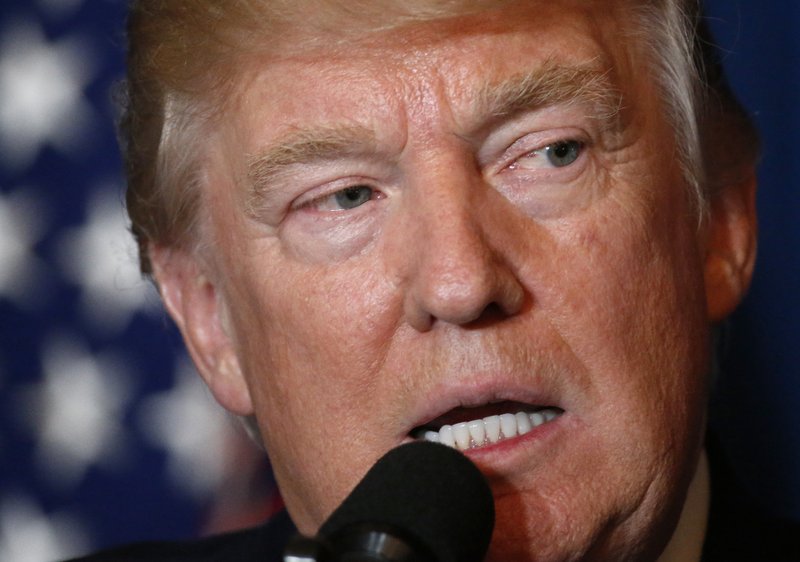
President Donald Trump said Thursday he hopes for a “truly honest” outcome from the Russia investigation that has consumed the opening months of his presidency, and he challenged Democrats to either continue their “obsession with a hoax” or begin serving the interests of the American people. At a boisterous campaign rally in Trump-friendly West Virginia, Trump slammed the investigation as a “fake story that is demeaning to all of us and most of all demeaning to our country and demeaning to our Constitution.” He commented hours after news broke that Robert Mueller, the special counsel leading the investigation, had empaneled a grand jury in the case. “I just hope the final determination is a truly honest one, which is what the millions of people who gave us our big win in November deserve and what all Americans who want a better future want and deserve,” Trump told thousands of cheering, sign-waving supporters packed into an arena in Huntington. Trump overwhelmingly won the state in the November election, partly due to his promises to revive a slumping coal industry. The president, who remains agitated over the investigation into allegations of coordination between his campaign associates and Russian government officials, said Democrats have a decision to make. “They can continue their obsession with the hoax or they can serve the interests of the American people,” he said. Trump maintains there were no ties between his campaign and Russia and says no wrongdoing was committed. His frustration over the investigation peaked in recent weeks as he began attacking Attorney General Jeff Sessions for recusing himself from the investigation. Sessions, most recently a U.S. senator, was an early and ardent Trump supporter. “Most people know there were no Russians in our campaign. There never were,” he told the cheering crowd in West Virginia. “We didn’t win because of Russia. We won because of you.” Trump argued that Democrats are pushing the “totally made-up Russia story” because “they have no message, no agenda and no vision.” “The Russia story is a total fabrication. It’s just an excuse for the greatest loss in the history of American politics,” he said, referring to his victory over Hillary Clinton. “It just makes them feel better when they have nothing else to talk about.” His suggestion for Democrats: “Try winning at the voter booth. Not going to be easy, but that’s the way you’re supposed to do it.” Republished with permission of The Associated Press.
Bipartisan Senate bill aims to protect special counsel’s job

Two members of the Senate Judiciary Committee are moving to protect Special Counsel Robert Mueller‘s job, putting forth new legislation that aims to ensure the integrity of current and future independent investigations. Republican Sen. Thom Tillis of North Carolina and Democratic Sen. Chris Coons of Delaware plan to introduce the legislation Thursday. The bill would allow any special counsel for the Department of Justice to challenge his or her removal in court, with a review by a three-judge panel within 14 days of the challenge. The bill would be retroactive to May 17, 2017 — the day Mueller was appointed by Deputy Attorney General Rod Rosenstein to investigate Russian meddling in the 2016 election and possible ties to Donald Trump‘s campaign. “It is critical that special counsels have the independence and resources they need to lead investigations,” Tillis said in a statement. “A back-end judicial review process to prevent unmerited removals of special counsels not only helps to ensure their investigatory independence, but also reaffirms our nation’s system of check and balances.” Mueller was appointed as special counsel in May following Trump’s abrupt firing of FBI Director James Comey. Mueller, who was Comey’s predecessor as FBI director, has assembled a team of prosecutors and lawyers with experience in financial fraud, national security and organized crimes to investigate contacts between Moscow and the Trump campaign. Trump has been critical of Mueller since his appointment, and his legal team is looking into potential conflicts surrounding the team Mueller has hired, including the backgrounds of members and political contributions by some members to Hillary Clinton. He has also publicly warned Mueller that he would be out of bounds if he dug into the Trump family’s finances. Mueller has strong support on Capitol Hill. Senators in both parties have expressed concerns that Trump may try to fire Mueller and have warned him not to do so. “Ensuring that the special counsel cannot be removed improperly is critical to the integrity of his investigation,” Coons said. Republican Sen. Lindsey Graham of South Carolina, another member of the Judiciary panel, said last week that he was working on a similar bill that would prevent the firing of a special counsel without judicial review. Graham said then that firing Mueller “would precipitate a firestorm that would be unprecedented in proportions.” The Tillis and Coons bill would allow review after the special counsel had been dismissed. If the panel found there was no good cause for the counsel’s removal, the person would be immediately reinstated. The legislation would also codify existing Justice Department regulations that a special counsel can only be removed for misconduct, dereliction of duty, incapacity, conflict of interest or other good cause, such as a violation of departmental policies. In addition, only the attorney general or the most senior Justice Department official in charge of the matter could fire the special counsel. In the case of the current investigation, Rosenstein is charged with Mueller’s fate because Attorney General Jeff Sessions recused himself from all matters having to do with the Trump-Russia investigation. Republished with permission of The Associated Press.
Darryl Paulson: Please fire Robert Mueller!
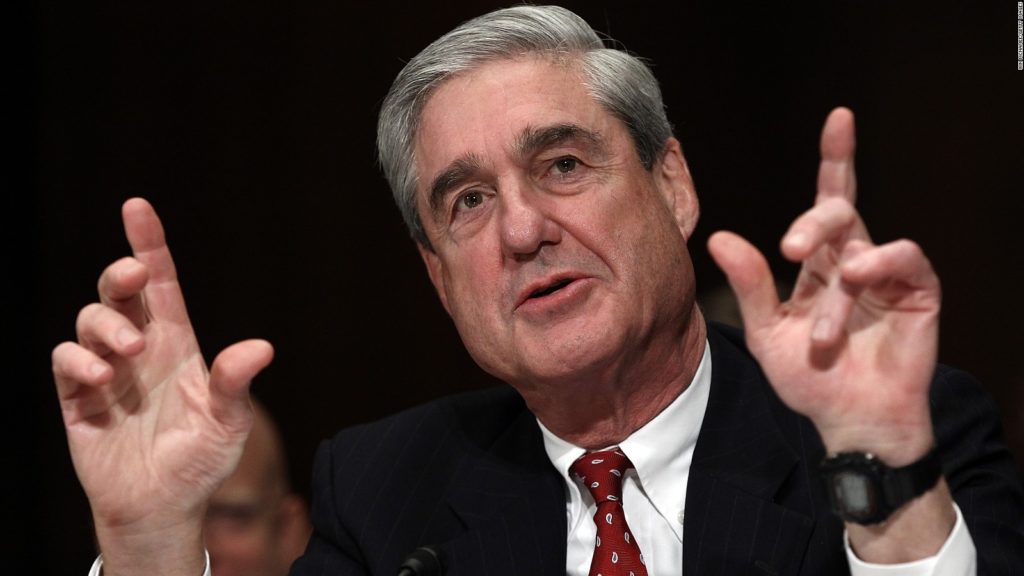
For all my friends who think I have finally gone off the deep end, I really do not want Special Counsel Robert Mueller to be fired. I do think the firing of Mueller, if it happens, may be the only way to end the tyranny of President Donald Trump. Trump has already fired FBI Director James Comey, as well as releasing National Security Adviser Michael Flynn and Press Secretary Sean Spicer. This does not include a half dozen lesser-known officials who have been shown the door in the first six months of Trump’s presidency. Nor does it include the likely departures of Attorney General Jeff Sessions, Chief of Staff Reince Priebus and Special Counsel Mueller. Trump fired Comey out of fear of where the Russian investigation was headed, although he told the public that Comey had lost the confidence of FBI employees. There was no evidence to support that. Trump told Russian officials in the Oval Office that Comey was fired because “he was crazy, a real nut job. I faced great pressure because of Russia. That’s taken care of.” Or, so he thought! Terminating Mueller would mean that the two highest-ranking officials investigating the Russian influence in the 2016 election were fired. If Mueller is fired, Republicans will quickly distance themselves from Trump, something they should have done long ago. Democrats will clamor for Trump’s impeachment. The American public will be asking why Trump fired both Comey and Mueller. What did he have to fear? What was hiding in his financial records that might demonstrate Trump’s ties to Russian government and business? If Trump has nothing to hide, as he has maintained from the beginning, then why stop the investigations? What could be better for Trump than to be given a clean bill of health by one of the most respected individuals in government? If that were to happen, I could envision Trump’s early morning tweet: “I told you so. What a waste of taxpayer’s time and money. I have been completely exonerated.” A clean bill from Mueller would do more to help Trump than anything imaginable. Mueller is a decorated Vietnam veteran, a respected attorney, and appointed by Republican president George W. Bush as Director of the FBI in 2001. Mueller served the full ten-year term and stayed on for two additional years at the request of President Obama. Not only is Mueller universally admired by both Republicans and Democrats, but he is more trusted by the American public than is the president. 64 percent of Americans said, “Donald Trump is more concerned about protecting his administration from being investigated,” than “protecting the United States from Russian interference.” When asked if President Trump should stop the investigation by the Special Counsel, 81 percent said no. The attacks on Mueller are two-pronged. First, Trump has attacked the scope of the investigation. Trump told The New York Times that if Mueller looks at anything involving his business dealings, “that’s a violation.” Trump Press Secretary Sarah Huckabee Sanders told the media that “the investigation should stay within the confines of Russian meddling in the election. Nothing beyond that.” Both Trump and Sanders fail to recognize that Mueller’s mandate was given to him by Deputy Attorney General Rod Rosenstein who appointed Mueller to his position. Rosenstein stated that Mueller had the authority to look into “any links and/or coordination between the Russian government and individuals associated with the campaign.” The second attack on Mueller relates to potential “conflicts of interest.” Trump argues that the day before Mueller was appointed Special Counsel he was being interviewed to head the FBI. “He wanted the job,” said Trump. Even if he did, I am not sure how this constitutes a conflict of interest. The Justice Department regulations do allow the Special Counsel to be fired for “conflict of interest,” as well as “misconduct, dereliction of duty and incapacity.” Rosenstein has stated he sees no grounds for removing Mueller. During the debate at the Constitutional Convention on impeachment, George Mason of Virginia asked whether “any man be above the law.” Future president James Madison included some of the grounds for impeachment, including that the president “might betray his trust to a foreign power.” (Now known as the Trump Provision.) If Trump is wise, he will let the Mueller investigation run its course. Wisdom has not been one of Trump’s strengths during his first six months in office. Trump could fire Mueller, and that would lead to a constitutional crisis. Perhaps nothing could be done to unify the nation or the political parties more than Trump acting like Caesar. Trump and his advisors are looking at whether he can pardon himself and family members. Although there is no precedent for this, Trump is not likely to find this a successful path. If, as Trump has repeatedly stated, there is no substance to the allegation of collusion with the Russians, then let Mueller complete his investigation and issue his findings. If there is something that would indicate collusion between Trump and the Russians, then Trump would be best advised to step aside and let Vice President Mike Pence assume office. To a great extent, Trump may have one last chance to “make America great again.” ••• Darryl Paulson is Emeritus Professor of Government at the University of South Florida in St. Petersburg specializing in Florida Politics and Elections.
Jeff Sessions’ days as Attorney General may be numbered
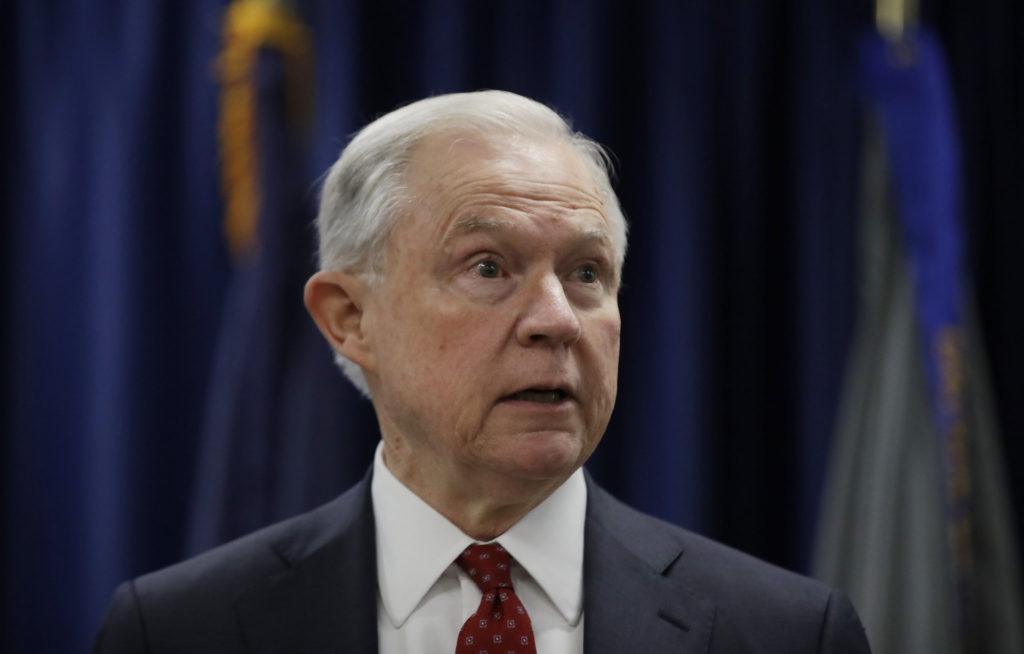
President Donald Trump has spoken with advisers about firing Attorney General Jeff Sessions, as he continues to rage against Sessions’ decision to recuse himself from all matters related to the Russia investigation. The president’s anger again bubbled into public view Monday as he referred to Sessions in a tweet as “beleaguered.” Privately, Trump has speculated aloud to allies in recent days about the potential consequences of firing Sessions, according to three people who have recently spoken to the president. They demanded anonymity to discuss private conversations. Trump often talks about making staff changes without following through, so those who have spoken with the president cautioned that a change may not be imminent or happen at all. What is clear is that Trump remains furious that the attorney general recused himself from the investigations. “So why aren’t the Committees and investigators, and of course our beleaguered A.G., looking into Crooked Hillarys crimes & Russia relations?” Trump tweeted Monday. His tweet came just hours before his son-in-law, White House senior adviser Jared Kushner, traveled to Capitol Hill to be interviewed about his meetings with Russians. Trump’s intensifying criticism has fueled speculation that Sessions may resign even if Trump opts not to fire him. During an event at the White House, Trump ignored a shouted question about whether Sessions should step down. The attorney general said last week he intended to stay in his post. If Trump were to fire Sessions, Deputy Attorney General Rod Rosenstein would be elevated to the top post on an acting basis. That would leave the president with another attorney general of whom he has been sharply critical in both public and private for his handling of the Russia probe, according to four White House and outside advisers who, like others interviewed, spoke on condition of anonymity to discuss private conversations. It could also raise the specter of Trump asking Rosenstein — or whomever he appoints to fill the position — to fire Robert Mueller, the special counsel leading the investigation into Russia’s meddling in the 2016 election and potential collusion with Trump’s campaign. The name of one longtime Trump ally, Rudy Giuliani, was floated Monday as a possible replacement for Sessions, but a person who recently spoke to the former New York City mayor said that Giuliani had not been approached about the position. Giuliani told CNN on Monday that he did not want the post and would have recused himself had he been in Sessions’ position. The president’s tweet about the former Alabama senator comes less than a week after Trump, in a New York Times interview, said that Sessions should never have taken the job as attorney general if he was going to recuse himself. Sessions made that decision after it was revealed that he had met with a top Russian diplomat last year. Trump has seethed about Sessions’ decision for months, viewing it as disloyal — arguably the most grievous offense in the president’s mind — and resenting that the attorney general did not give the White House a proper heads-up before making the announcement that he would recuse himself. His fury has been fanned by several close confidants — including his son Donald Trump Jr, who is also ensnared in the Russia probe — who are angry that Sessions made his decision. Trump and Sessions’ conversations in recent weeks have been infrequent. Sessions had recently asked senior White House staff how he might patch up relations with the president but that effort did not go anywhere, according to a person briefed on the conversations. Sessions was in the West Wing on Monday but did not meet with the president, according to deputy press secretary Sarah Huckabee Sanders. Newt Gingrich, a frequent Trump adviser, said that the president, with his criticisms of Sessions, was simply venting and being “honest about his feelings. But that doesn’t mean he’s going to do anything,” Gingrich said. Still, he said the president’s comments would have repercussions when it comes to staff morale. “Anybody who is good at team building would suggest to the president that attacking members of your team rattles the whole team,” Gingrich said. Sessions and Trump used to be close, sharing both a friendship and an ideology. Sessions risked his reputation when he became the first U.S. senator to endorse the celebrity businessman and his early backing gave Trump legitimacy, especially among the hard-line anti-immigration forces that bolstered his candidacy. Several of Sessions’ top aides now serve in top administration posts, including Stephen Miller, the architect of several of Trump’s signature proposals, including the travel ban and tough immigration policy. After Trump’s public rebuke last week, Sessions seemed determined to keep doing the job he said “goes beyond anything that I would have ever imagined for myself.” “I’m totally confident that we can continue to run this office in an effective way,” Sessions said last week. Armand DeKeyser, who worked closely with Sessions and became his chief of staff in the Senate, said he did not see the attorney general as someone who would easily cave to criticism, even from the president. “If Jeff thinks he is in an untenable position and cannot be an effective leader, I believe he would leave,” DeKeyser said. “But I don’t think he’s reached that point.” But Anthony Scaramucci, the president’s new communications director, said that it’s time for Trump and Sessions to hash out a resolution, regardless of what they decide. “My own personal opinion, I think they’ve got to have a meeting and have a reconciliation one way or another. You know what I mean? Either stay or go, one way or another,” he said. The Justice Department declined to comment. Republished with permission of The Associated Press.
Donald Trump legal team looking to investigate Robert Mueller aides
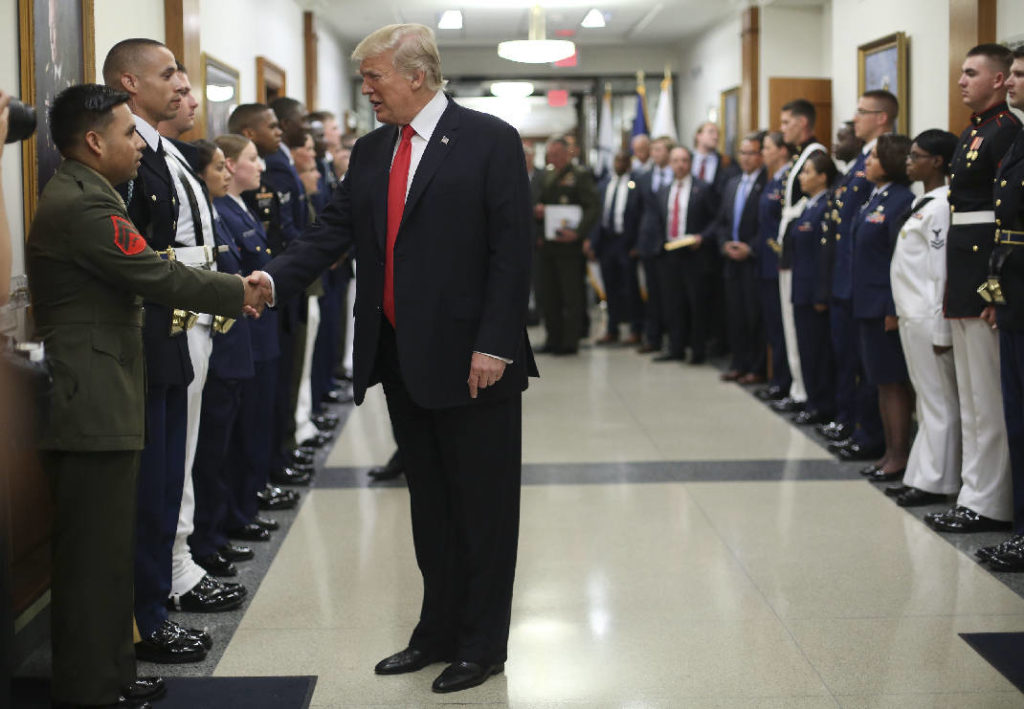
President Donald Trump’s legal team is evaluating potential conflicts of interest among members of special counsel Robert Mueller’s investigative team, three people with knowledge of the matter said Thursday. The revelations come as Mueller’s investigation appears likely to probe some of the Trump family’s business ties. Attorney Jay Sekulow, a member of the president’s external legal team, told The Associated Press that the lawyers “will consistently evaluate the issue of conflicts and raise them in the appropriate venue.” Two people with knowledge of that process say those efforts include probing the political affiliations of Mueller’s investigators and their past work history. Trump himself has publicly challenged Mueller, declaring this week that the former FBI director would be crossing a line if he investigated the president’s personal business ties. Mueller and congressional committees are investigating whether the president’s campaign coordinated with Russia during the 2016 election. While Trump has assailed the probes as a partisan “witch hunt,” the investigations have increasingly ensnared his family and close advisers, including son Donald Trump Jr. and son-in-law and White House senior adviser Jared Kushner. As the investigations intensify, Trump’s legal team is also undergoing a shakeup. New York-based attorney Marc Kasowitz, whose unconventional style has irked some White House aides, is seen as a diminishing presence in the operation, according to two people with knowledge of the matter. Mark Corallo, who has been working as a spokesman for the legal team, is no longer part of the operation, according to those familiar with the situation. They insisted on anonymity because they were not authorized to discuss the matter publicly. Republished with permission of The Associated Press.
What’s next for James Comey? Maybe law, corporate work, politics
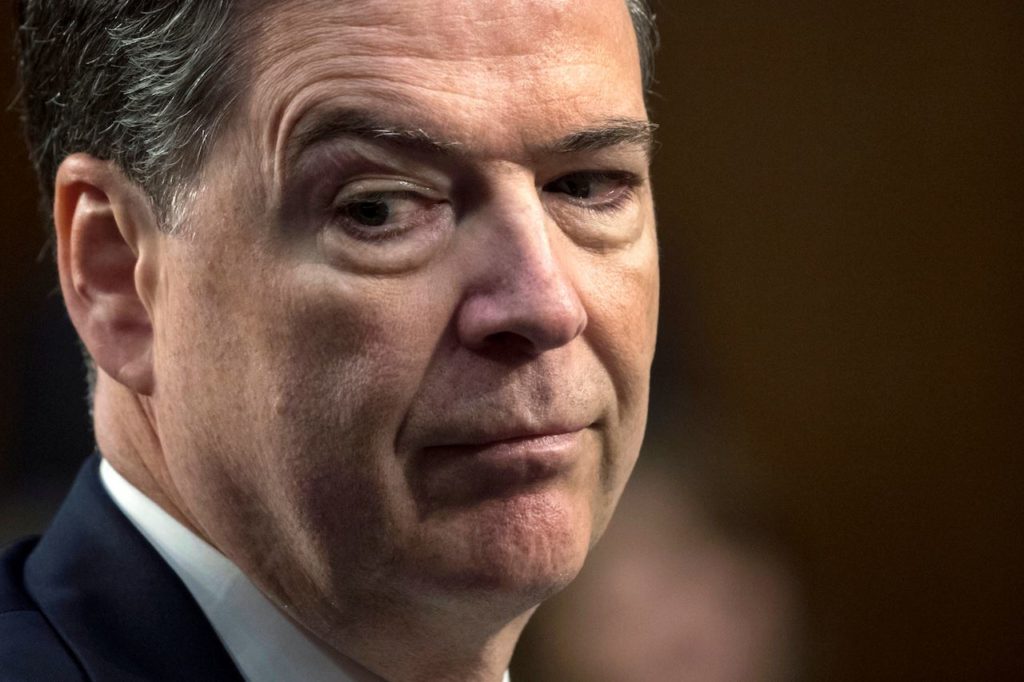
So what’s next for James Comey? The former FBI director boldly challenged the president who fired him, accused the Trump administration of lying and supplied material that could be used to build a case against President Donald Trump. But after stepping away from the Capitol Hill spotlight, where he’s always seemed comfortable, the 56-year-old veteran lawman now confronts the same question long faced by Washington officials after their government service. His dry quip at a riveting Senate hearing that he was “between opportunities” vastly understates the career prospects now available to him — not to mention potential benefits from the public’s fascination with a man who has commanded respect while drawing outrage from both political parties. Comey was pilloried for his handling of the Hillary Clinton email investigation, yet is now seen as a critical cog in the inquiry into possible connections between Russia and the Trump campaign. He may be called upon to provide more detail about his interactions with Trump, which he documented in a series of memos, even as he turns attention to potential opportunities in law, corporate work or perhaps even politics. “There’s some jobs where the controversy would not be a benefit, but that’s why I see him ending up in a place where he can be himself,” said Evan Barr, a former federal prosecutor in New York City who worked under Comey in the U.S. attorney’s office. “If he were the president of a college or an important think tank, he could pursue the issues that mean the most to him and not be worried about trying to make anyone happy.” Comey is unlikely to play any sort of direct role in the investigation now led by special counsel Robert Mueller, his predecessor as FBI director. But he almost certainly would avail himself as a witness to Mueller in any obstruction of justice investigation centered on his firing, or to further discuss requests he received from Trump that he interpreted as directives. Comey’s carefully crafted memos are laden with contemporaneously recorded details and verbatim quotes that could easily lay down a path for investigators, and already have been turned over to Mueller. In one note, Comey says Trump cleared the room before encouraging Comey to end an investigation into Trump’s national security adviser, Michael Flynn. Comey’s decision to share with reporters, through an intermediary, details from those conversations, and his insistence on testifying in public attest to his determination to confront the president head-on. “I do think he is unquestionably, if this thing goes anywhere, one of the star witnesses,” said Robert Anderson, a retired FBI executive assistant director. “It really comes down to his testimony, in some avenues.” Career options are generally plentiful for departing FBI leaders and attorneys general. Both Mueller and former Attorney General Eric Holder, for instance, took jobs with prestigious law firms after leaving public service. But few if any have as public a profile as Comey or have generated such intense feelings. Even Democrats who disagree with his firing remain stung by his revival of the Clinton email investigation days before the November election. Pro-Trump Republicans who were pleased by Comey some seven months ago may now concur with the president’s assessment of Comey as a “showboat.” And companies that do business with the government might find it risky to bring aboard someone who’s so publicly at odds with the current administration. Comey’s name over the years has been floated in politics, though it’s not clear the former Republican — now an independent — has any interest. Educated at the College of William & Mary, where he wrote a senior thesis on a 20th century theologian, Comey went on to law school at the University of Chicago. The bulk of his work has been in government, with the exception of private practice legal work in Virginia early in his career, lucrative general counsel stints at defense contractor Lockheed Martin and a Connecticut hedge fund, and a teaching job at Columbia University. He was the U.S. attorney in Manhattan who in 2003 charged Martha Stewart with obstructing justice in a stock trade investigation. He then became deputy attorney general, the No. 2 spot at the Justice Department, where he famously faced down fellow Bush administration officials over a surveillance program authorization. In 2013, he was sworn in as FBI director, a job he’s called the honor of his life. Friends and colleagues say the father of five reveled in his public service. “Anyone who has ever worked with Jim as far as I know, certainly speaking for myself, holds him in incredibly high esteem,” said Sharon McCarthy, who worked for him at the U.S. attorney’s office. “You’d be working late, he’d have a Coke in his hand and he’d come in, sit down, put his feet on your desk and start talking,” Though Comey joked at a Senate hearing one week before his May 9 firing that he perhaps regretted picking up the phone when he was recruited for the FBI job while living comfortably in Connecticut, he also was known to pepper speeches with cracks about the “soulless” private sector. He’d urge young audiences to imagine asking themselves on their death beds who they would want to have been, saying he hoped everyone’s answer would be that they tried to help others. His own law firm life, he’d say, was lacking despite the matching furniture, parking space and Colonial-style home that accompanied the job. “You do not make much money working for the FBI. You will not get famous working for the FBI. But you will be rich beyond belief if you look at it from (the public service) vantage point,” he has said. One other question for Comey regardless of his next job will be how much he chooses, either directly or through intermediaries, to respond to allegations from Trump or Republicans rallying to the president’s defense. On Friday, Trump strongly suggested Comey had lied about their encounters and accused him of being a “leaker.” “In


